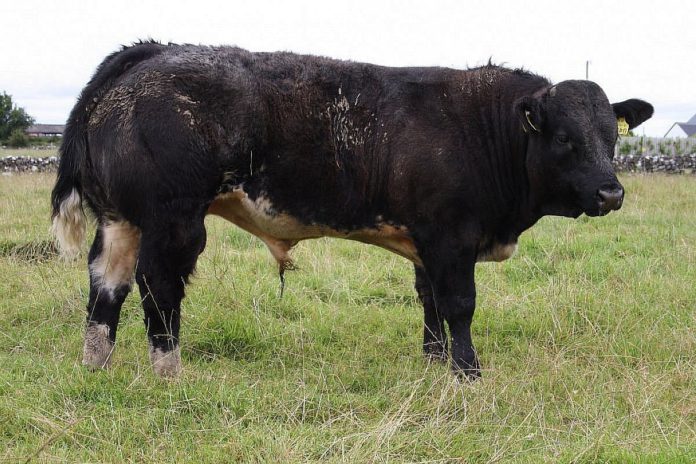As part of the 2022 BEEP-S scheme, farmers can choose between meal feeding pre-weaning and post-weaning or vaccination as their second action.
In last week’s segment, That’s Farming looked at the first measure in detail and in this article, we look at vaccinations and submitting record sheets.
If farmers select this measure, they will have to implement a vaccination programme for respiratory diseases in suckler calves for respiratory diseases and record details of vaccination.
The DAFM states that farmers should seek veterinary advice for a “suitable” vaccination programme, whereby the PVP has “specific” knowledge of the farm.
In a statement, a DAFM spokesperson said: “Vaccinations help reduce the probability of disease but cannot solely be depended upon for prevention.”
“The management system pre-weaning and post-weaning will assist the successful outcomes of a bovine respiratory disease vaccination programme.”
“DAFM recommend that you discuss with your vet an appropriate vaccination programme as well as the effective management of all relevant risk factors, including parasite control to reduce the instances of respiratory disease in your herd.”
“Each participant must keep a record in this option of the purchase and use of vaccines,” the spokesperson added.
Vaccines
The DAFM has produced the following table summarising pathogens and available vaccines:

The DAFM advises farmers to choose between option one and option two:
Option 1, it advises, is suitable if there is a short time before risk period or if cattle can only be handled once.
- Single RSV and Pi3 Intranasal 2-4 weeks before weaning/housing/sale;
- At the same time, a single (or 2-dose programme) IBR live intra-muscular injection (2 to 4 weeks before weaning/housing/sale)
Option 2, it advises, is suitable if there is more time before risk period or a broader coverage including bacteria is required).
- First subcutaneous injection of RSV, Pi3 and Mannhaemia haemolytica dead, 6 to 8 weeks before weaning/housing/sale;
- Second subcutaneous injection of RSV, Pi3 and Mannhaemia haemolytica dead, 2-4 weeks before weaning/housing/sale;
- At the same time as the second injection, a Single IBR live intra-muscular, 2-4 weeks before weaning/housing/sale.
Derogation
Note: It stresses that you must not use an IBR vaccine in breeding bulls destined for AI centres.
It urges a farmer to undertake “special” precautions if IBR control is “necessary” on a pedigree farm. It advises that you should vaccine cohorts in an inactivated form, or if you use IBR Marker live, you must administer IM.
Contact the DAFM before you execute your vaccination programme, if you wish to avail of this derogation.
Payment rate and record-keeping
Farmers will receive a rate of €30/calf weighed to a maximum of 100 calves.
The DAFM states that participants will not be eligible for payment under action 2, unless they carry out action 1, which, as outlined in this article, is mandatory weighing.
According to a spokesperson for the Department of Agriculture, Food and the Marine, participants must complete a record showing the date of commencement of meal feeding or the details of the administration of vaccination to suckler calves.
In addition, you must retain any meal purchases receipts (or evidence of use of own farm-produced cereals) and vaccination purchase receipts or any prescriptions on-farm and make them available in the event of an inspection.
Furthermore, the DAFM may also request a copy of the records sheets from an applicant during the year as part of an administrative check to verify compliance with these measures.
Inspections and administrative control checks
It also states that it will conduct on-the-spot farm compliance inspections with administrative control checks.
In this case, a percentage of participants will have to submit their records and associated documentation to the DAFM upon request at various times in the programme year.
The DAFM will examine records as a means of checking compliance with actions. The programme requires the applicant to “fully” comply with such a request to submit information to the department.
If you fail to produce or forward records when requested, this will be a breach of the programme obligations.
You will receive no payments for the relevant year, and the DAFM will impose a 50% administrative penalty based on the overall amount, which would have been payable in the year for that action.
You can find a BEEP-S vaccination record sheet via this link.
Other articles on That’s Farming:
BEEP-S Faecal Sampling: 8 labs where you send samples & 2022 deadline





